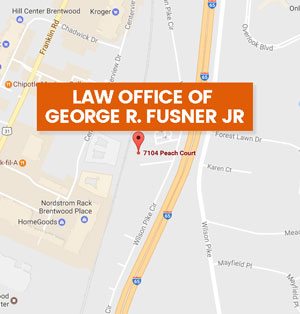An employee who breaches the fiduciary duty of loyalty may be required to disgorge any profit or benefit he received as a result of his disloyal activities. See ITT Cmty. Dev. Corp. v. Barton, 457 F.Supp. 224, 230 (M.D.Fla.1978); Clyde Rudd & Assocs., Inc. v. Taylor, 29 N.C.App. 679, 225 S.E.2d 602, 604 (1976); Restatement (Second) of Agency § 469. In addition, an employee who breaches the duty of loyalty may be required to surrender any compensation paid by the employer during the period of breach. Baker v. Battershell, 1986 WL 7602, at *6 (Tenn.Ct.App. July 9, 1986) (citing Red Boiling Water Co. v. McEwen, 3 Tenn. C.C.A. (Higgins) 687 (Tenn.Ct.App.1913)). It is not necessary that the employer suffer a loss in order to recoup such illicit profits or compensation from the employee. Phansalkar v. Anderson Weinroth & Co., 344 F.3d 184, 200 (2d. Cir.2003); Ross v. Calamia, 153 Fla. 151, 13 So.2d 916, 917 (1943); Faultersack v. Clintonville Sales Corp., 253 Wis. 432, 34 N.W.2d 682, 684 (1948); Restatement (Second) of Agency § 469.
Efird v. Clinic of Plastic and Reconstructive Surgery, P.A. 147 S.W.3d 208, 220 (Tenn.Ct.App.,2003)
In an action for damages caused by a fraudulent misrepresentation, the proper measure of the plaintiffs’ general damages is the benefit of the bargain rule. Ford Motor Co. v. Lonon, 217 Tenn. 400, 398 S.W.2d 240 (1966); Shwab v. Walters, supra; Augur v. Smith, 90 Tenn. 729, 18 S.W. 398 (1891) and Hogg v. Cardwell, 36 Tenn. 151 (1856). This measure of damages allows the plaintiff to recover the difference between the actual value of the property be received At the time of the making of the contract and the value that the property would have possessed if Appleton’s representations had been true. 37 Am.Jur.2d, Fraud and Deceit, s 353, p. 473 (1968); see Shwab v. Walters, supra; 13 A.L.R.3d, Damages-Fraudulent Representation, s 3, p. 885 (1967).
Haynes v. Cumberland Builders, Inc. 546 S.W.2d 228, 233 (Tenn.App. 1976)
It is the duty of an injured party to exercise reasonable care and diligence to avoid loss or minimize damages. Yates v. Metro Govt. of Nashville & Davidson County, 60 Tenn.App. 719, 451 S.W.2d 437 (1969); see Arkansas River Packet Co. v. Hobbs, 105 Tenn. 29, 58 S.W. 278 (1900); Summers & Lewis v. Sanderson, 7 Tenn.App. 624 (1928). The applicable standard is one of reasonable care. The plaintiff is not required to mitigate his damages if such action is unduly burdensome or impossible.
Haynes v. Cumberland Builders, Inc. 546 S.W.2d 228, 234 (Tenn.App. 1976)
CONSUMER PROTECTION DAMAGES
(3) If the court finds that the use or employment of the unfair or deceptive act or practice was a willful or knowing violation of this part, the court may award three (3) times the actual damages sustained and may provide such other relief as it considers necessary and proper.
(4) In determining whether treble damages should be awarded, the trial court may consider, among other things:
(A) The competence of the consumer or other person;
(B) The nature of the deception or coercion practiced upon the consumer or other person;
(C) The damage to the consumer or other person; and
(D) The good faith of the person found to have violated the provisions of this part.
- C. A. § 47-18-109
e)(1) Upon a finding by the court that a provision of this part has been violated, the court may award to the person bringing such action reasonable attorney’s fees and costs.
(2) In any private action commenced under this section, upon finding that the action is frivolous, without legal or factual merit, or brought for the purpose of harassment, the court may require the person instituting the action to indemnify the defendant for any damages incurred, including reasonable attorney’s fees and costs.
- C. A. § 47-18-109
BURDEN OF PROOF –TREBLE DAMAGES
Secondly, the jury should be charged under Tennessee Code Annotated section 47-50-109 as to these same seven elements but the burden of proof necessary to establish these elements under the trebling statute should be “clear and convincing evidence.” Emmco Ins. Co. v. Beacon Mut. Indem. Co., 204 Tenn. 540, 322 S.W.2d 226; Lichter v. Fulcher, 22 Tenn.App. 670, 125 S.W.2d 501, 508. Upon a finding by the jury of all seven of the Dynamic Motel factors by a clear and *360 convincing evidence standard, treble (multiple) damages are automatic.
The jury should also be charged under Hodges v. Toof as to whether or not plaintiff is entitled to punitive damages. If the jury responds in the affirmative, then the bifurcated hearing contemplated by Hodges as to the amount of punitive damages must occur under Hodges’ instructions. When the jury returns with its verdict as to the amount of punitive damages following the bifurcation hearing, then and then only the plaintiff must elect whether he will take the multiple damages assessed under the trebling statute or the punitive damages awarded under Hodges. He cannot have both.
Buddy Lee Attractions, Inc. v. William Morris Agency, Inc. 13 S.W.3d 343, 359 -360 (Tenn.Ct.App.,1999)



